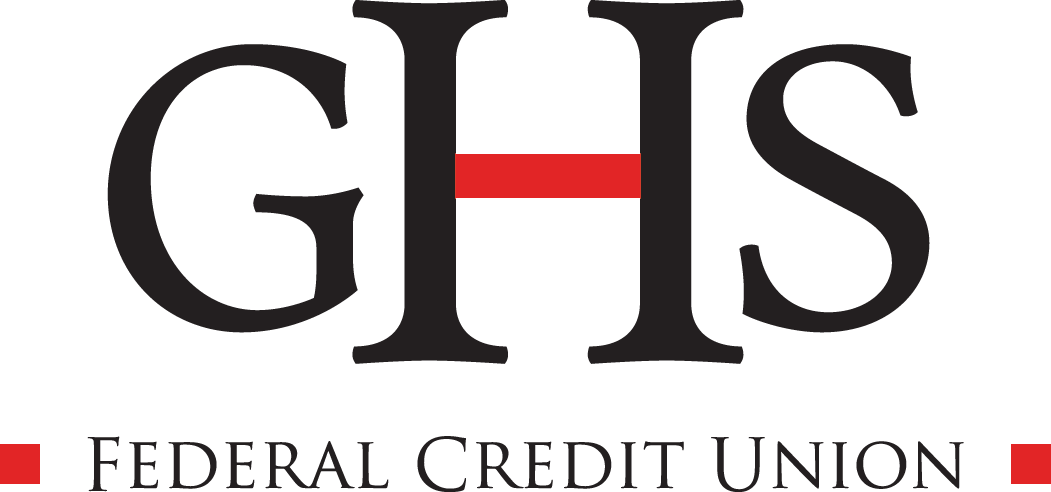First-Time Home Buyer's Guide
Are you ready to say goodbye to the days of renting and hello to your first home? This first-time home buyer's guide includes all of the steps, tips, and advice you'll need to jumpstart your home buying journey with confidence.
Continue reading to learn things like where to start when buying a home for the first time, what happens on closing day, and everything in between.
THE BASICS OF QUALIFYING
At GHS Federal Credit Union, we view a variety of personal financial factors in the application process. These three categories carry the most weight when deciding to extend credit: your credit history, current debt, and income.
Before applying, give your credit health a checkup. Verify there are no errors on your report or recent derogatory items like late payments. Avoid applying for new credit in the few months leading up to your mortgage application. Good credit history is usually reflective of a strong credit score which qualifies you for the most competitive rates with mortgage loans.
Your income and outstanding debt will also be considered in the loan process. There isn’t a minimum dollar amount you need to earn to buy a home. You’ll want to ensure you have enough money coming in to cover your mortgage payment as well as your other bills. Staying within certain ratios helps your lender determine how much you can afford for a mortgage payment.
CHOOSING YOUR FIRST MORTGAGE
There are many types of mortgage loans available so take the time to dig into your options. Remember to find what works best for your financial situation. Get in the know by taking a look at some of the most popular options:
Conventional
These loans are your match if you have a strong credit history, stable employment history, minimal debt, and enough funds to put down at least 3%. They can be used to finance nearly any type of property including primary residences, vacation homes, or investment properties.
Due to being well-qualified, your overall borrowing costs tend to be lower than other types of mortgages, even if interest rates are slightly higher.
Government-Backed Loans
The U.S. government isn’t a mortgage lender, but it does play a role in helping more Americans become homeowners especially if you’re a first-time homebuyer. These loans are protected by mortgage insurance making it easier to offer more flexibility for qualifying.
Some examples of government-backed loans include the Federal Housing Administration (FHA Loans), the U.S. Department of Agriculture (USDA Loans), and the U.S. Department of Veterans Affairs (VA Loans). These loans typically have lower down payments and more flexibility in the qualification process.
UNDERSTANDING INTEREST RATES
Think of interest as the price you pay for using someone else's money until you pay it back. More specifically, your mortgage rate is what it costs each year to borrow the money and is expressed as a percentage.
Generally, the amount of interest you pay every month is added to the amount still owed on a loan, also known as the principal in which you repay monthly.
Fixed interest rates stay the same for the entire length of your mortgage loan. This offers a predictable payment each month and makes budgeting easier.
An adjustable-rate mortgage (ARM) uses a rate that varies based upon the market. Therefore, the monthly payment may change over time as your interest rate increases or decreases along with market trends.
Read More: Understanding Mortgage Interest Rates
WHAT TO EXPECT ON CLOSING DAY
Closing on your first house is a milestone to celebrate! Closing day is the last step in buying your new home. This process usually takes place four to eight weeks after the offer on the home is accepted. This allows time for home inspections, home appraisals, funding, and title searches to be completed.
On the day of closing, the ownership of the property is officially transferred to you as the buyer. This day consists of transferring funds, providing mortgage and title fees, and updating the deed of the house to your name. Legally, you should receive your closing documents three business days before your scheduled closing date.
Make sure you read them prior to closing day so you understand what you’re signing and check that there are no errors. Take notes if you have questions or concerns — you may want to address them before the closing.
GAIN FIRST-TIME HOME BUYER CONFIDENCE WITH GHS FEDERAL CREDIT UNION
We’ve covered the basics of preparing for the loan process as a first-time homebuyer but everyone’s journey is unique. In addition to the tips given, don’t forget to make a plan for your down payment funds.
Read below to find out more on average down payments as you prepare your budget and savings plan!
